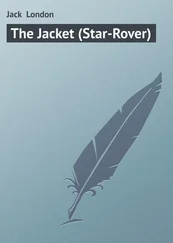Jack London - Smoke Bellew
Здесь есть возможность читать онлайн «Jack London - Smoke Bellew» весь текст электронной книги совершенно бесплатно (целиком полную версию без сокращений). В некоторых случаях можно слушать аудио, скачать через торрент в формате fb2 и присутствует краткое содержание. Жанр: Классическая проза, Прочие приключения, на английском языке. Описание произведения, (предисловие) а так же отзывы посетителей доступны на портале библиотеки ЛибКат.
- Название:Smoke Bellew
- Автор:
- Жанр:
- Год:неизвестен
- ISBN:нет данных
- Рейтинг книги:4 / 5. Голосов: 1
-
Избранное:Добавить в избранное
- Отзывы:
-
Ваша оценка:
- 80
- 1
- 2
- 3
- 4
- 5
Smoke Bellew: краткое содержание, описание и аннотация
Предлагаем к чтению аннотацию, описание, краткое содержание или предисловие (зависит от того, что написал сам автор книги «Smoke Bellew»). Если вы не нашли необходимую информацию о книге — напишите в комментариях, мы постараемся отыскать её.
Smoke Bellew — читать онлайн бесплатно полную книгу (весь текст) целиком
Ниже представлен текст книги, разбитый по страницам. Система сохранения места последней прочитанной страницы, позволяет с удобством читать онлайн бесплатно книгу «Smoke Bellew», без необходимости каждый раз заново искать на чём Вы остановились. Поставьте закладку, и сможете в любой момент перейти на страницу, на которой закончили чтение.
Интервал:
Закладка:
Nor did they waste time in making him a prisoner. Unarmed himself, Smoke could only submit. The contents of the sled were distributed among their own packs, and he was given a pack composed of his and Shorty's sleeping-furs. The dogs were unharnessed, and when Smoke protested, one of the Indians, by signs, indicated a trail too rough for sled-travel. Smoke bowed to the inevitable, cached the sled end-on in the snow on the bank above the stream, and trudged on with his captors. Over the divide to the north they went, down to the spruce-trees which Smoke had glimpsed the preceding afternoon. They followed the stream for a dozen miles, abandoning it when it trended to the west and heading directly eastward up a narrow tributary.
The first night was spent in a camp which had been occupied for several days. Here was cached a quantity of dried salmon and a sort of pemmican, which the Indians added to their packs. From this camp a trail of many snow-shoes led off — Shorty's captors, was Smoke's conclusion; and before darkness fell he succeeded in making out the tracks Shorty's narrower snow-shoes had left. On questioning the Indians by signs, they nodded affirmation and pointed to the north.
Always, in the days that followed, they pointed north; and always the trail, turning and twisting through a jumble of upstanding peaks, trended north. Everywhere, in this bleak snow-solitude, the way seemed barred, yet ever the trail curved and coiled, finding low divides and avoiding the higher and untraversable chains. The snow-fall was deeper than in the lower valleys, and every step of the way was snow-shoe work. Furthermore, Smoke's captors, all young men, traveled light and fast; and he could not forbear the prick of pride in the knowledge that he easily kept up with them. They were travel-hardened and trained to snow-shoes from infancy; yet such was his condition that the traverse bore no more of ordinary hardship to him than to them.
In six days they gained and crossed the central pass, low in comparison with the mountains it threaded, yet formidable in itself and not possible for loaded sleds. Five days more of tortuous winding, from lower altitude to lower altitude, brought them to the open, rolling, and merely hilly country La Perle had found ten years before. Smoke knew it with the first glimpse, on a sharp cold day, the thermometer forty below zero, the atmosphere so clear that he could see a hundred miles. Far as he could see rolled the open country. High in the east the Rockies still thrust their snowy ramparts heavenward. To the south and west extended the broken ranges of the projecting spur-system they had crossed. And in this vast pocket lay the country La Perle had traversed — snow-blanketed, but assuredly fat with game at some time in the year, and in the summer a smiling, forested, and flowered land.
Before midday, traveling down a broad stream, past snow-buried willows and naked aspens, and across heavily timbered flats of spruce, they came upon the site of a large camp, recently abandoned. Glancing as he went by, Smoke estimated four or five hundred fires, and guessed the population to be in the thousands. So fresh was the trail, and so well packed by the multitude, that Smoke and his captors took off their snow-shoes and in their moccasins struck a swifter pace. Signs of game appeared and grew plentiful — tracks of wolves and lynxes that without meat could not be. Once, one of the Indians cried out with satisfaction and pointed to a large area of open snow, littered with fang-polished skulls of caribou, trampled and disrupted as if an army had fought upon it. And Smoke knew that a big killing had been made by the hunters since the last snow-flurry.
In the long twilight no sign was manifested of making camp. They held steadily on through a deepening gloom that vanished under a sky of light — great, glittering stars half veiled by a greenish vapor of pulsing aurora borealis. His dogs first caught the noises of the camp, pricking their ears and whining in low eagerness. Then it came to the ears of the humans, a murmur, dim with distance, but not invested with the soothing grace that is common to distant murmurs. Instead, it was in a high, wild key, a beat of shrill sound broken by shriller sounds — the long wolf-howling of many wolf-dogs, a screaming of unrest and pain, mournful with hopelessness and rebellion. Smoke swung back the crystal of his watch and by the feel of finger-tips on the naked hands made out eleven o'clock. The men about him quickened. The legs that had lifted through a dozen strenuous hours lifted in a still swifter pace that was half a run and mostly a running jog. Through a dark spruce-flat they burst upon an abrupt glare of light from many fires and upon an abrupt increase of sound. The great camp lay before them.
And as they entered and threaded the irregular runways of the hunting-camp, a vast tumult, as in a wave, rose to meet them and rolled on with them — cries, greetings, questions and answers, jests and jests thrust back again, the snapping snarl of wolf-dogs rushing in furry projectiles of wrath upon Smoke's stranger dogs, the scolding of squaws, laughter, the whimpering of children and wailing of infants, the moans of the sick aroused afresh to pain, all the pandemonium of a camp of nerveless, primitive wilderness folk.
Striking with clubs and the butts of guns, Smoke's party drove back the attacking dogs, while his own dogs, snapping and snarling, awed by so many enemies, shrank in among the legs of their human protectors, and bristled along stiff-legged in menacing prance.
They halted in the trampled snow by an open fire, where Shorty and two young Indians, squatted on their hams, were broiling strips of caribou meat. Three other young Indians, lying in furs on a mat of spruce-boughs, sat up. Shorty looked across the fire at his partner, but with a sternly impassive face, like those of his companions, made no sign and went on broiling the meat.
"What's the matter?" Smoke demanded, half in irritation. "Lost your speech?"
The old familiar grin twisted on Shorty's face. "Nope," he answered. "I'm a Indian. I'm learnin' not to show surprise. When did they catch you?"
"Next day after you left."
"Hum," Shorty said, the light of whimsy dancing in his eyes. "Well, I'm doin' fine, thank you most to death. This is the bachelors' camp." He waved his hand to embrace its magnificence, which consisted of a fire, beds of spruce-boughs laid on top of the snow, flies of caribou skin, and wind-shields of twisted spruce and willow withes. "An' these are the bachelors." This time his hand indicated the young men, and he spat a few spoken gutturals in their own language that brought the white flash of acknowledgment from eyes and teeth. "They're glad to meet you, Smoke. Set down an' dry your moccasins, an' I'll cook up some grub. I'm gettin' the hang of the lingo pretty well, ain't I? You'll have to come to it, for it looks as if we'll be with these folks a long time. They's another white man here. Got caught six years ago. He's a Irishman they picked up over Great Slave Lake way. Danny McCan is what he goes by. He's settled down with a squaw. Got two kids already, but he'll skin out if ever the chance opens up. See that low fire over there to the right? That's his camp."
Apparently this was Smoke's appointed domicile, for his captors left him and his dogs, and went on deeper into the big camp. While he attended to his foot-gear and devoured strips of hot meat, Shorty cooked and talked.
"This is a sure peach of a pickle, Smoke — you listen to me. An' we got to go some to get out. These is the real, blowed-in-the-glass, wild Indians. They ain't white, but their chief is. He talks like a mouthful of hot mush, an' if he ain't full-blood Scotch they ain't no such thing as Scotch in the world. He's the hi-yu, skookum top-chief of the whole caboodle. What he says goes. You want to get that from the start-off. Danny McCan's been tryin' to get away from him for six years. Danny's all right, but he ain't got go in him. He knows a way out — learned it on huntin' trips — to the west of the way you an' me came. He ain't had the nerve to tackle it by his lonely. But we can pull it off, the three of us. Whiskers is the real goods, but he's mostly loco just the same."
Читать дальшеИнтервал:
Закладка:
Похожие книги на «Smoke Bellew»
Представляем Вашему вниманию похожие книги на «Smoke Bellew» списком для выбора. Мы отобрали схожую по названию и смыслу литературу в надежде предоставить читателям больше вариантов отыскать новые, интересные, ещё непрочитанные произведения.
Обсуждение, отзывы о книге «Smoke Bellew» и просто собственные мнения читателей. Оставьте ваши комментарии, напишите, что Вы думаете о произведении, его смысле или главных героях. Укажите что конкретно понравилось, а что нет, и почему Вы так считаете.











